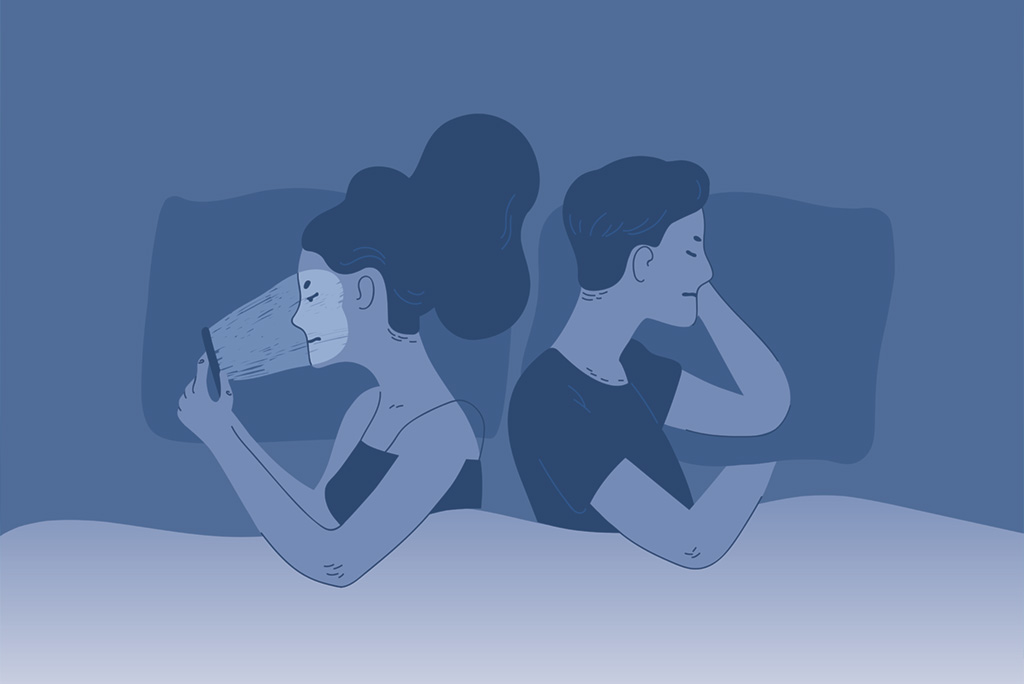In millions of households around the world, specifically those in industrialized nations, two-thirds of adults fail to obtain the recommended eight hours of nightly sleep. If you are one of those individuals for whom a good night’s sleep remains elusive, you know first-hand the deleterious result of a night spent tossing and turning: decreased energy, productivity and concentration, compounded by increased irritability and anxiety.
Sleep is one of the most important aspects of our health. A balanced diet and exercise are of vital importance, yes. But we now see sleep as the preeminent force in this health trinity. The physical and mental impairments caused by one night of bad sleep dwarf those caused by an equivalent absence of food or exercise. Every major disease in the developed world—Alzheimer’s, cancer, obesity, diabetes, depression—has strong links to deficient sleep.
Until very recently, science had no answer to the question of why we sleep, or what good it serves, or why its absence is so damaging to our health. Compared to the other basic drives in life—eating, drinking and reproducing—the purpose of sleep remained elusive.
Until now. Neuroscientist and sleep researcher Matthew Walker has devoted more than 20 years to sleep research. “No matter the ailment, it’s more than likely that sleep will see you well. Sleep is the elixir of life. It is the Swiss Army knife of health.” Walker is a professor of neuroscience and psychology at UC Berkeley, the founder-director of its Center for Human Sleep Science and a former professor of psychiatry at Harvard University. He has appeared on 60 Minutes, Nova, BBC News, and NPR’s Science Friday. In his international bestseller Why We Sleep, he seeks to reunite humanity with Mother Nature’s best effort yet at immortality: sleep.
“Human beings are the only species that will deliberately deprive themselves of sleep on a regular basis,” says Walker. “However, the number of people who can survive on six hours of sleep a night without consequence is zero.”
Walker asserts that the reduced sleeping we’re now suffering is a consequence of our lifestyle, not a consequence of evolutionary habituation. “Back in the 1940s, people were sleeping on average just a little bit over eight hours a night, and now, in the modern age, we’re down to around 6.7 hours a night.” The insatiable late-night and early-morning demands of a post-industrial way of life denies us the sleep we vitally need.
But as with any poor lifestyle habit, we have the power to change. After two decades of research and clinical practice, combined with thousands of studies from laboratories around the world, Walker has begun to crack the code of sleep. Read on for some eye-opening sleep stats:
SLEEP DIVORCE
Approximately 30-40% of people will admit to not sleeping in the same bed as their partner. Males are far more likely to snore, and females have higher rates of insomnia, which means no one is sleeping. “The stigma is if you’re not sleeping together, you’re not ‘sleeping together,’” says Walker. “But the truth is, if you’re sleeping well in separate bedrooms, your intimacy will increase.”
QUALITY VS. QUANTITY
What’s more important: the quality or the quantity of sleep? Quantity is important, but quality is absolutely critical. Walker recommends giving yourself a non-negotiable, eight-hour opportunity to sleep every night. And if you have trouble falling asleep after 20 minutes, get up and go to another dim room, but don’t stay in bed awake. “Your brain is a remarkably associative device, and it will quickly learn that the bed is about being awake,” says Walker. Instead, read a book or listen to music (no screens!). And only when you’re sleepy, return to bed.
SLEEP AND CREATIVITY
How are sleep and creativity connected? Sleep gathers in all the information you’ve been learning throughout the day and amalgamates it. Problems that seemed difficult to solve during the day become three times more likely to be solved after a good night’s sleep. In fact, some parts of your brain are 30% more active when you go into deep REM sleep than they are when you’re awake.
So the old adage “Sleep it Off” actually works: We are better at solving problems after a good night of sleep.
CHECKLIST FOR IMPROVING SLEEP
We’ve all been there: It’s 3 a.m. and your over-active mind won’t be stilled. What to do? Here, sleep expert Dr. Walker offers his tips to help you get (and stay) soundly asleep.
Set a sleep schedule: sleep and wake up at the same time every day.
Don’t use alarms if you can help it. Alarms cause a huge stress reaction on waking. And pressing the snooze button causes repeated stress traumas.
Wake up with the sun or use very bright lights. This sets your circadian rhythm.
Avoid all caffeine and nicotine, if possible. But if you must have caffeine, avoid it in the afternoon, since it takes over 10 hours to wear off fully.
Exercise regularly but not within three hours of sleep.
Don’t nap after 3 p.m.; that makes it harder to sleep at night.
Don’t drink alcohol unless it is completely metabolized by sleep time.
Avoid large meals and drinks late at night. Large meals can cause indigestion; too many fluids cause frequent urination.
Reduce light before sleep. A pitch-black bedroom sends a powerful cue to your body that it’s time to get some rest.
Lower the room temperature. The ideal sleeping temperature is 65 degrees. A cool bedroom simulates the ebb and flow of daily temperature, triggering the hypothalamus to release melatonin. Other tricks: expose your palms and feet while sleeping, or take a hot bath before sleeping.
Don’t rely on sleeping pills—these are usually just sedatives that put you more in a sedation state than sleep. Also, avoid medications that disrupt sleep.
Don’t lie in bed trying to fall asleep for more than 20 minutes. Get up and do something until feeling sleepy. Deep breathing (slowly, from the belly), meditation and light yoga can get you back in the mood for sleep. Or do some journaling—studies have found it can help reduce nighttime worrying.


